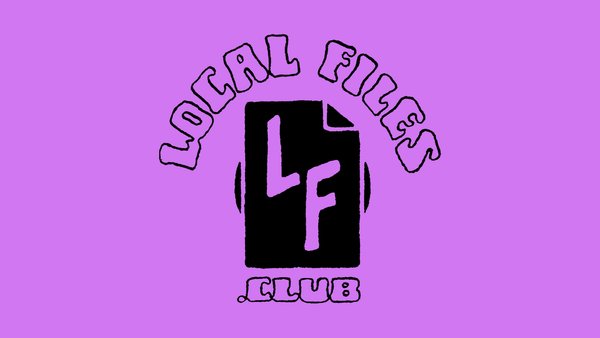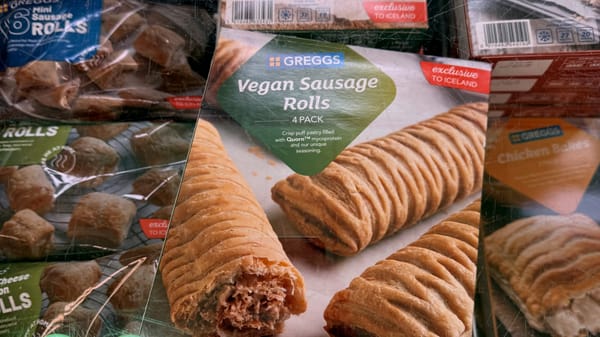Plantega is bringing plant-based food to a bodega near you
Founder and CEO Nil Zacharias on integrating vegan food with a New York institution
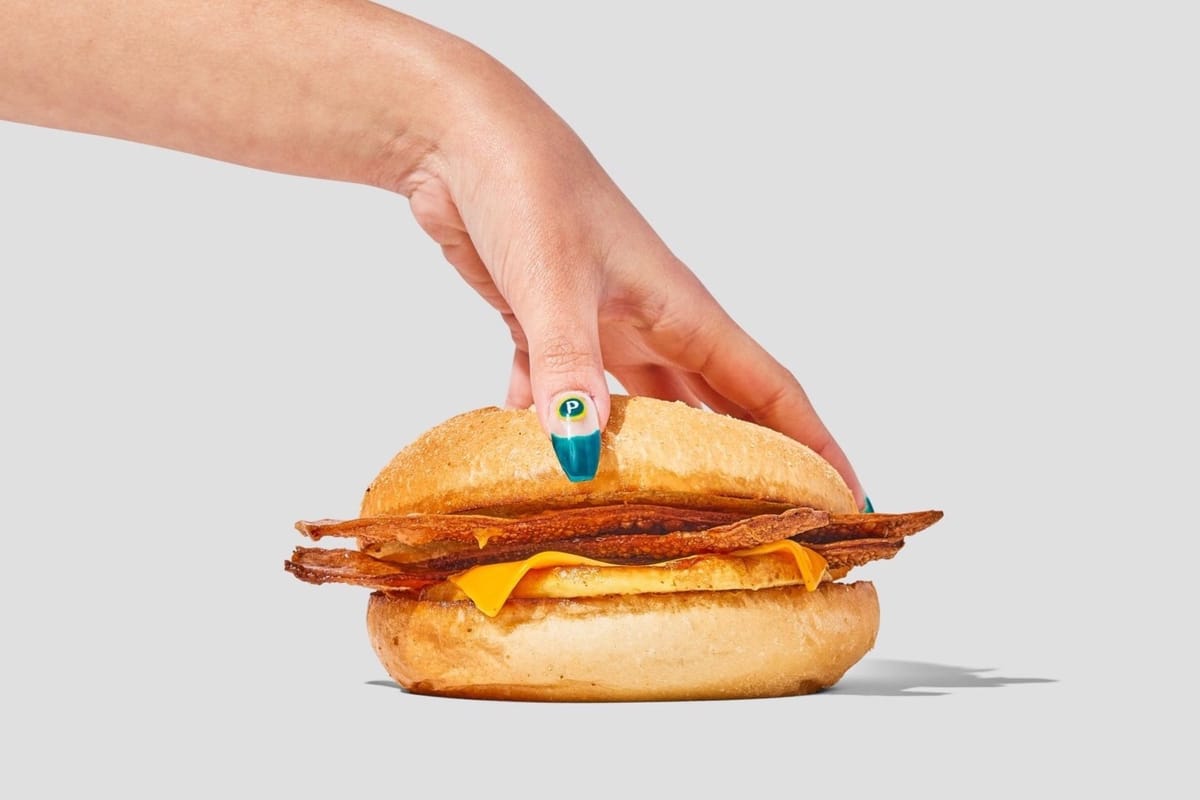
Before going vegan, sandwiches were a big part of my lunchtime routine. Whether they were from a chain like Potbelly or a local deli counter, quick, affordable sandwiches were a staple of my diet. But, as you might be aware, most sandwiches are meat and dairy-based. There isn’t really much you can order at your typical sandwich shop that isn’t contaminated with animal products. Breakfast sandwiches were off the menu as well. BEC, SEC, HEC—breakfast was a trifecta of animal triads.
The loss of breakfast sandwiches hit Nil Zacharias hard when he went vegan in 2010. “That’s what I used to eat from the bodega near where I lived,” Zacharias told me earlier this month. “And then I couldn’t eat that anymore, until the plant-based food industry evolved.” In the past few years, tons of new companies have popped up aiming to replicate everything in a breakfast sandwich—brands like Just Egg, Beyond Meat, and Daring. The only downside? They’re often more expensive and harder to find than their animal-based counterparts.
Zacharias, who has spent the last decade of his career focused on plant-based foods, was sitting at home during the pandemic when George Floyd was murdered and the national conversation turned to social justice, access, and equity. “It made me realize that everything we’ve been doing in the food system, despite our best efforts to come up with new ways to improve, whether it’s plant-based food or organic food or regenerative agriculture, we tend to replicate the same old system,” Zacharias told me, with the people most affected by food inequality excluded from improvements in the system. It’s why movements like organic and vegan food are sometimes seen as elitist—we act like eating better is a choice, but really, it’s a privilege.
The question stuck in his mind: how could we make plant-based eating more accessible? Zacharias turned to the trusty bodega, a New York institution as integral to city life as the subway. There are thousands of bodegas in the city—anywhere between 7000 and 13,000, depending on who you trust—and about half of them have kitchens, offering up sandwiches and more for a reasonable price. Like the subway, they’re embedded into their neighborhoods and serve people from all across the socioeconomic spectrum. What if these pervasive restaurants had affordable, plant-based menus?
This simple idea led Zacharias to found Plantega in late 2020 with a three-month pilot in three locations around the city. “We didn’t really have a business model in the beginning, to be honest,” Zacharias said. “I reached out to many of the big plant-based food manufacturers and said, I have this crazy idea. I wanna put an all plant-based menu in a couple of bodegas in New York City and see what happens.” The pilot was a success—the plant-based menu items were popular, and business boomed at the pilot bodegas. In the last two years, Plantega has expanded to dozens of locations across the city, with a goal of reaching over a hundred locations.
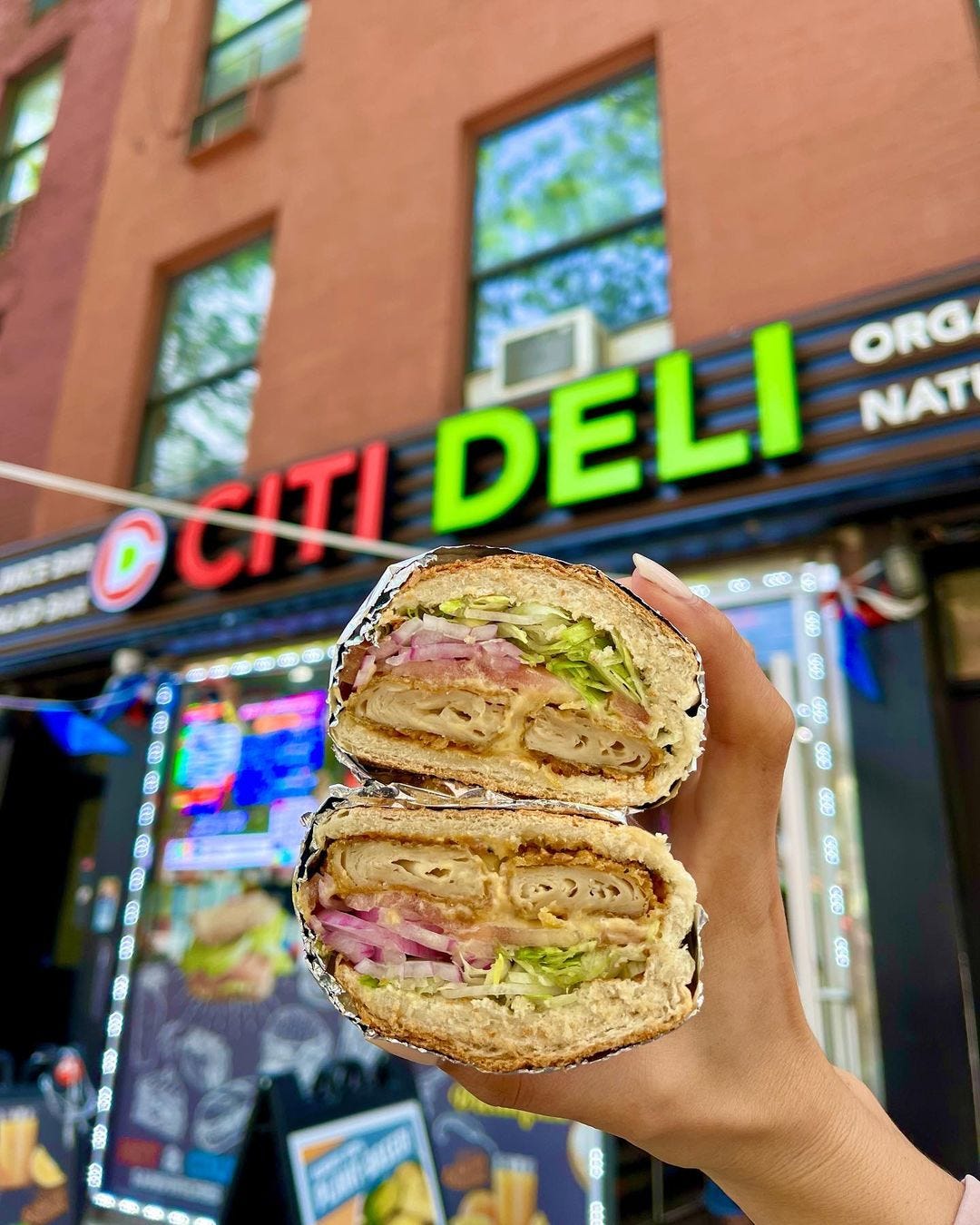
Your deli is now plant-based
Plantega is designed to be a turnkey solution for bodega owners. Plantega comes up with the menu, then partners with food manufacturers to source the products. A local distributor delivers them to the store, while Plantega provides the printed menus and signage, trains staff on the particulars of cooking these products, and helps onboard them on food delivery apps. For their part, Plantega earns a commission from the bodega as well as from the distributor for the sale.
They’ve established a price ceiling to help make the final menu item affordable in stores—they want Plantega to be cheaper than your typical vegan restaurant—while still leaving a significant margin for the bodega. “In fact,” Zacharias pointed out, “stores stand to make more money selling our sandwiches than they do their regular meat sandwiches because you cannot price meat too high.”
Along those lines, “our pitch to bodegas is solely economic,” Zacharias told me. Take away the altruistic mission and it’s a simple win across the board. “You’re gonna make money selling this because customers want it and we’re going to make it easy for you to do.” Bodegas make more money, distributors and plant-based brands get more customers, and Plantega fulfills its mission while becoming a sustainable business. Zacharias described it as a “magic formula” where everyone wins and no one loses.
It wasn’t easy convincing bodegas to sign up at first—the idea of letting someone come into their store with an alien menu and train their staff was a laughable idea to these fiercely independent businesses. But increasingly, as Plantega has grown and word of the money to be made has spread, new locations have been referrals from other bodegas. “That’s the way the world works—people make money, others want to do it as well.” And at the end of the day, the bodega is still in control.
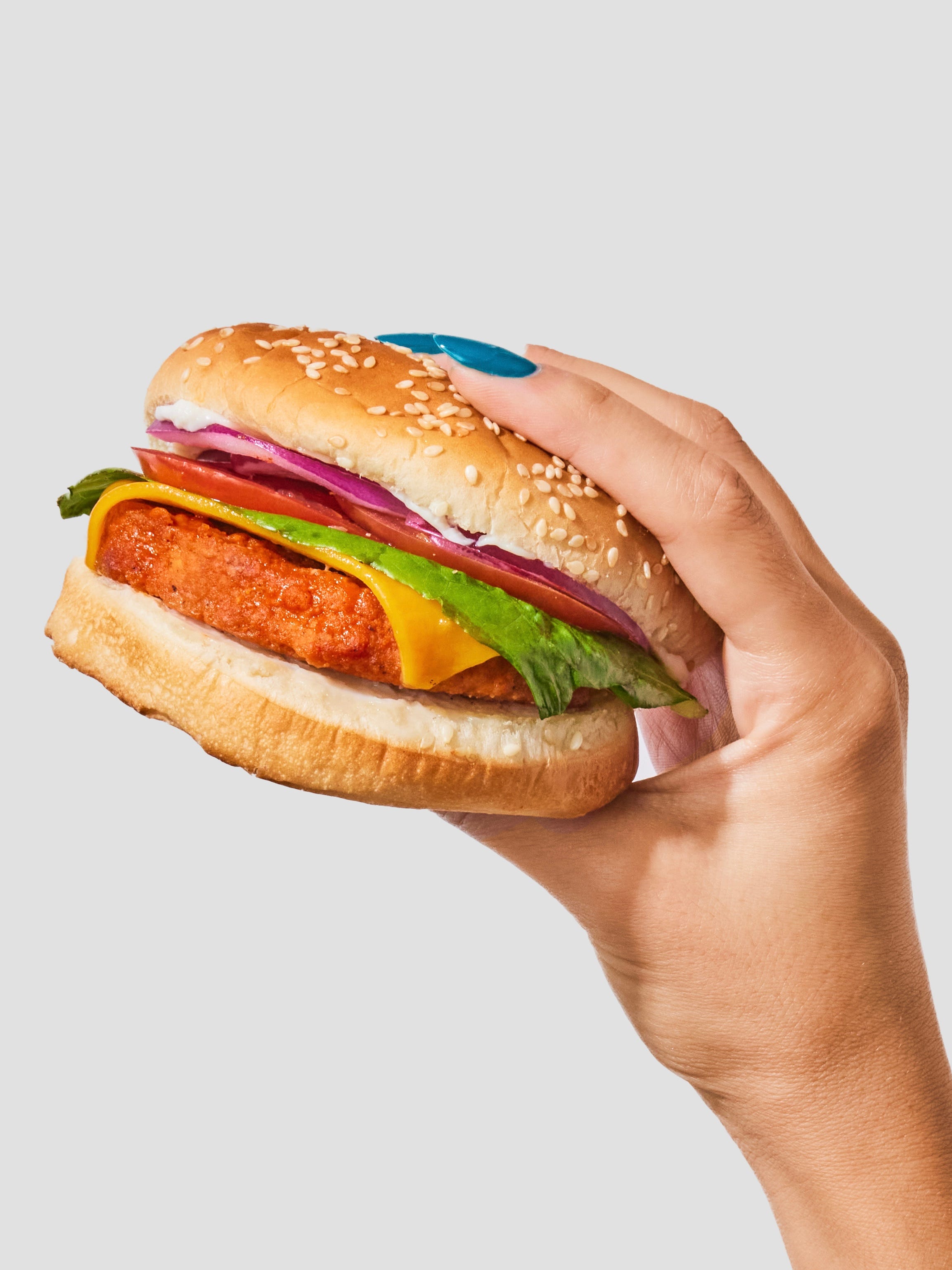
More importantly: what’s on the menu?
In the initial pilot, Plantega aimed to replicate four bodega classics: a chopped cheese, an SEC, a cheeseburger, and a deli slice sandwich. Even as their menu expands—thanks to the success of their model and inbound requests from plant-based brands—“we want to keep the menu somewhat true to what you typically get in a bodega,” Zacharias told me. As they developed the menu, Plantega looked at what sells over on the animal-based side and then searched for plant-based ingredients to make up their version. “What we’re doing now could not even been possible four or five years ago because the products didn’t exist.”
The in-store menu is a core group of 14 bodega classics, ranging from a simple butter roll to a chicken tender sub. On the delivery apps, Plantega expands to a rotating cast of over 30 menu items. Because it’s easy to add and remove menu items digitally—“we don’t have to keep replacing the physical menus”—they can try new ingredients and experiment. For example, at my local Plantega, you can order chicken over rice or a chicken gyro on GrubHub.
“Bodegas don’t have big kitchens—they just have a flat grill, a fryer, maybe a panini press. And everything has to be made pretty quickly.” But Zacharias likes the space and time constraints on the menu. Everything has to be simple, straightforward, nothing fancy—“iconic bodega food that just so happens to be plant-based,” as Zacharias puts it.
The menu not only attracts new clientele but converts existing customers, too. That means stores can extract more income from their existing customer base while Plantega helps bring in vegans and vegetarians. “Health tends to be the biggest reason I find people choose our menu,” Zacharias told me. “We obviously are much higher on the health spectrum compared to the cheapest conventional meat, dairy, and eggs that are sold in bodegas.”
Integrated—not competing—with bodegas
One of my favorite things about Plantega is that they’re integrated with existing local businesses. Bodegas have been under constant threat—from the pandemic, from 15-minute grocery delivery apps, from rising rents—and instead of adding to that list, Plantega is giving bodegas a tool to fight back and compete against these outside forces. Bodegas remain a destination for a quick lunch, whether you’re a carnivore, plant-curious, or a full vegan convert.
“I can get too philosophical about this sometimes,” Zacharias told me about Plantega’s accessibility mission. “But the bottom line is, when you come into one of our stores and you see a menu, you don’t need to know all of this.” Instead, you should just get good food, a fun brand, and an authentic, New York bodega experience.
Zacharias knows they won’t be able to fix the entire food system. But at a smaller scale, he feels like Plantega has hit a sweet spot where they’ve helped make plant-based foods not only accessible, but financially sustainable, all working towards the goal of helping New Yorkers “realize that plant-based or vegan food doesn’t have to be this strange, weird thing that only a certain set of people are allowed to embrace and participate in.” Just like bodegas, Plantega is for everyone.

